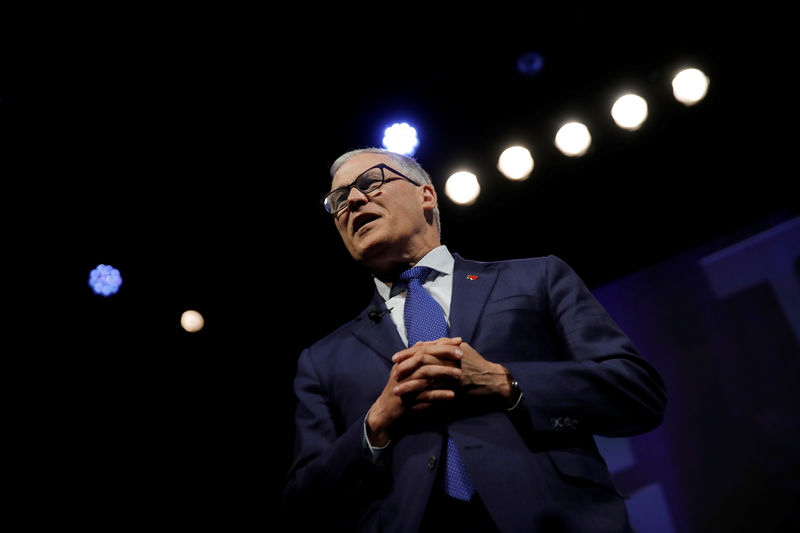By Valerie Volcovici
WASHINGTON (Reuters) - Washington Governor Jay Inslee, a 2020 Democratic presidential contender whose campaign is focused on climate change, unveiled a plan to invest $9 trillion in 10 years in modern manufacturing and green infrastructure to "revitalize America's economy for the 21st century."
This is the second plank of Inslee's broader "Climate Mission" agenda, which sets a goal of achieving 100 percent zero-emission electricity by 2035.
The 38-page plan calls for $300 billion in average annual federal spending to leverage around $600 billion more each year to invest in industries and manufacturing, infrastructure, and skilled labor, which it estimates would create 8 million jobs.
"America must rise to this 21st century challenge with a bold plan to: create jobs; protect workers’ rights; repower the economy; rebuild our infrastructure; and reinvest in innovation," according to his proposed strategy.
Inslee is struggling to break out of the bottom of the pack in a crowded 2020 Democratic field, and is trying to secure a spot in the June Democratic debate by either maintaining 1 percent support in three national polls or garnering 65,000 individual campaign donations.
He is hoping his focus on climate change will resonate with Democratic voters, who have identified climate change as a top issue, according to recent Monmouth and CNN polls.
Democratic rivals Beto O'Rourke and Elizabeth Warren have unveiled details on aspects of their climate change strategies in recent weeks.
Inslee's plan invokes President Franklin Delano Roosevelt's New Deal, which called for sweeping economic changes and investment to revitalize the U.S. economy reeling from the Great Depression, and calls climate change a threat to modern civilization.
His proposals include doubling spending for public transportation, creating a national building retrofitting program over two decades and launching a Clean Water for All program to upgrade drinking, storm and wastewater infrastructure.
The plan also aims to boosting domestic manufacturing electric vehicle and battery production by establishing a federal "buy clean" program and creating a new advanced manufacturing tax credit.
The program is also focused on aiding workers retrenched from fossil fuel production or dependent jobs to transition to a clean economy by creating a version of a GI bill- a World War 2-era program that supported war veterans by securing their medical care, educational training, and retirement benefits.

It would create a “Restoration Fund” to create new union jobs in environmental reconstruction that fossil fuel companies would pay into.